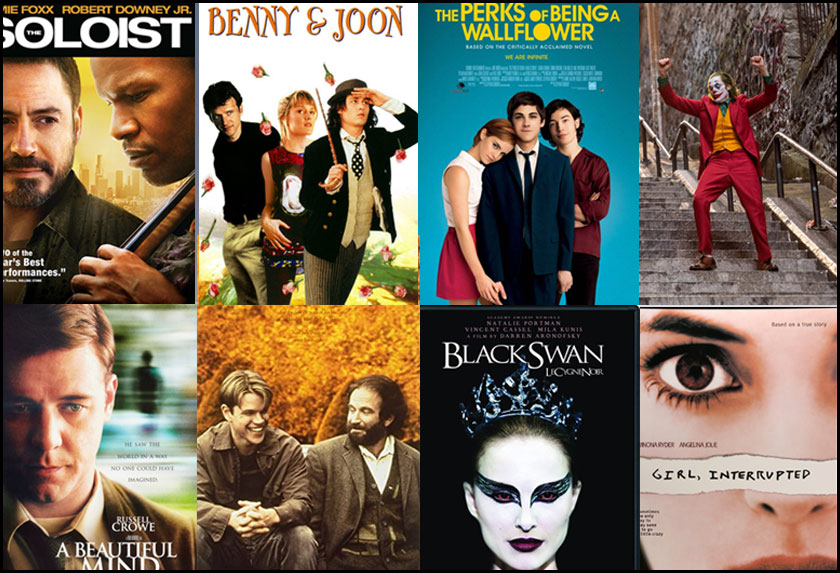How to Use Movies to Enhance Mental Health and Well-Being
Discover Life-Changing Movies for Mental Health ?? Boost Your Well-Being Today! ???? Embrace Happiness Now.

Exploring the Influence of Films on Mental Health and Well-being
The impact of movies on?mental health?and well-being is a subject of growing interest and concern in today's society. As a powerful form of entertainment and storytelling, movies have the ability to evoke a wide range of emotions and thoughts in their audiences. While films can be a source of inspiration, joy, and relaxation, they can also elicit negative emotions and contribute to mental health challenges. This essay delves into the multifaceted relationship between movies and mental health, examining how films can both positively and negatively affect our psychological well-being.
?The Positive Impact of Movies on Mental Health
Stress Relief and Relaxation
One of the most immediate and widely recognized benefits of watching movies is stress relief and relaxation. Engaging in a well-crafted film can provide a temporary escape from the daily stresses of life. When we immerse ourselves in a captivating storyline, our minds are distracted from worries, allowing for a much-needed?mental break. The experience of relaxation while watching a movie can help reduce anxiety levels, lower stress hormones, and promote a sense of calm and well-being.
Emotional Catharsis
Movies often explore complex and emotional themes, providing viewers with an opportunity for emotional catharsis. Watching characters?navigate challenges, triumph over adversity, or express raw emotions can help audience members process their own feelings and experiences. In this way, movies can serve as a therapeutic outlet for pent-up emotions, enabling individuals to connect with their own emotional landscapes.
Inspiring Creativity and Empathy
Films have the power to spark creativity and cultivate empathy. By exposing audiences to diverse characters, cultures, and perspectives, movies can broaden our horizons and deepen our understanding of the world. This exposure can encourage creativity and inspire individuals to think critically about complex issues. Moreover, movies that depict characters overcoming obstacles or pursuing their dreams can motivate viewers to set their own goals and work towards personal growth.
Social Connection
Watching movies with friends or family members can foster social connection and strengthen relationships. Shared cinematic experiences often lead to discussions and conversations about the themes, characters, and plotlines of the film. These interactions promote bonding and a sense of belonging, which are crucial for mental well-being.
The Negative Impact of Movies on Mental Health
Exposure to Disturbing Content
Not all movies have a positive impact on mental health. Some films contain graphic violence, explicit sexual content, or disturbing themes that can be psychologically distressing to viewers. Exposure to such content can trigger feelings of anxiety, fear, or even trauma, particularly in individuals who are sensitive to these themes.
Unrealistic Body Standards
Many movies perpetuate unrealistic body standards and beauty ideals, particularly for women. The constant exposure to these ideals can lead to body dissatisfaction and low self-esteem, contributing to mental health issues such as eating disorders and depression. This impact is exacerbated by the prevalence of digitally altered images of actors in the media.
Comparison and Envy
Watching glamorous lifestyles and extravagant possessions portrayed in movies can lead to social comparison and feelings of envy. When individuals perceive their own lives as inferior in comparison to the characters on screen, it can erode self-esteem and generate discontentment.
Sleep Disruption
Excessive movie-watching, especially late at night, can disrupt sleep patterns. The blue light emitted by screens can interfere with the production of melatonin, a hormone essential for sleep regulation. Poor sleep, in turn, is associated with various mental health problems, including mood disorders and cognitive impairment.
Moderation and Mindful Consumption
To harness the positive impact of movies on mental health while mitigating potential negative effects, it is important to adopt a balanced and mindful approach to consumption.
Content Selection
Choosing movies with themes that resonate positively with one's values and interests can enhance the mental health benefits of watching films. Individuals should be selective about the content they expose themselves to and avoid films that?trigger distress?or promote harmful ideals.
Time Management
Managing screen time is crucial to maintaining mental well-being. Setting limits on daily movie-watching hours can prevent excessive consumption and its associated negative consequences, such as sleep disruption and social isolation.
Social Interaction
Watching movies with friends or family members can foster social interaction and provide an opportunity for shared enjoyment. Engaging in post-movie discussions can deepen connections and promote mental well-being.
The Therapeutic Potential of Cinematherapy
Cinematherapy, also known as movie therapy or film therapy, is a therapeutic approach that utilizes movies to promote emotional healing and personal growth. It recognizes the power of films to evoke emotions, spark self-reflection, and facilitate discussions about one's thoughts and feelings. While cinematherapy is typically facilitated by mental health professionals, individuals can also use this approach for self-help and self-awareness.
?Emotional Exploration
Movies provide a safe and controlled environment for exploring complex emotions. By watching characters navigate their own emotional journeys, viewers can gain insights into their own feelings and experiences. This process can be particularly beneficial for individuals who find it challenging to express or understand their emotions.
Identification and Empathy
Viewers often identify with characters who share similar experiences or emotions, fostering a sense of empathy and connection. This identification can help individuals feel less isolated in their struggles and more understood, which can be comforting and validating for their mental health.
Discussion and Reflection
Engaging in discussions about movies with a therapist, support group, or trusted friends can facilitate self-reflection and insight. Conversations about the themes, characters, and plotlines of a film can help individuals process their thoughts and emotions in a supportive and non-judgmental environment.
Coping and Resilience
Movies that depict characters overcoming adversity or coping with challenges can serve as sources of inspiration and hope. They can provide individuals with coping strategies and motivate them to develop resilience in the face of their own life difficulties.
?Mindful Consumption and Mental Health
To reap the benefits of movies on mental health while minimizing potential harm, individuals should adopt a mindful and intentional approach to consumption.
Self-Awareness
Understanding one's own emotional triggers and sensitivities is essential. This self-awareness can guide content selection, helping individuals choose films that align with their emotional well-being goals and avoiding those that may be distressing.
Balance
Maintaining a balance between screen time and other activities is crucial. Allocating time for physical exercise, social interactions, and outdoor experiences can help prevent excessive movie-watching and its potential negative consequences.
?Seeking Professional Help
If individuals find that movies consistently trigger distressing emotions or exacerbate mental health issues, it is important to seek professional help. A mental health provider can offer guidance, support, and strategies for managing emotional responses to media content.
Movies have a profound impact on mental health and well-being, offering both positive and negative influences. When consumed mindfully and in moderation, films can provide stress relief, emotional catharsis, inspiration, and opportunities for social connection. However, exposure to disturbing content, unrealistic body standards, and excessive movie-watching can have detrimental effects on mental health.
To maximize the positive impact of movies on mental well-being, individuals should exercise discernment in content selection, manage their screen time, and prioritize social interaction during movie-watching experiences. By doing so, we can harness the potential of films as a valuable tool for enhancing our mental health and enriching our lives.
What's Your Reaction?
















